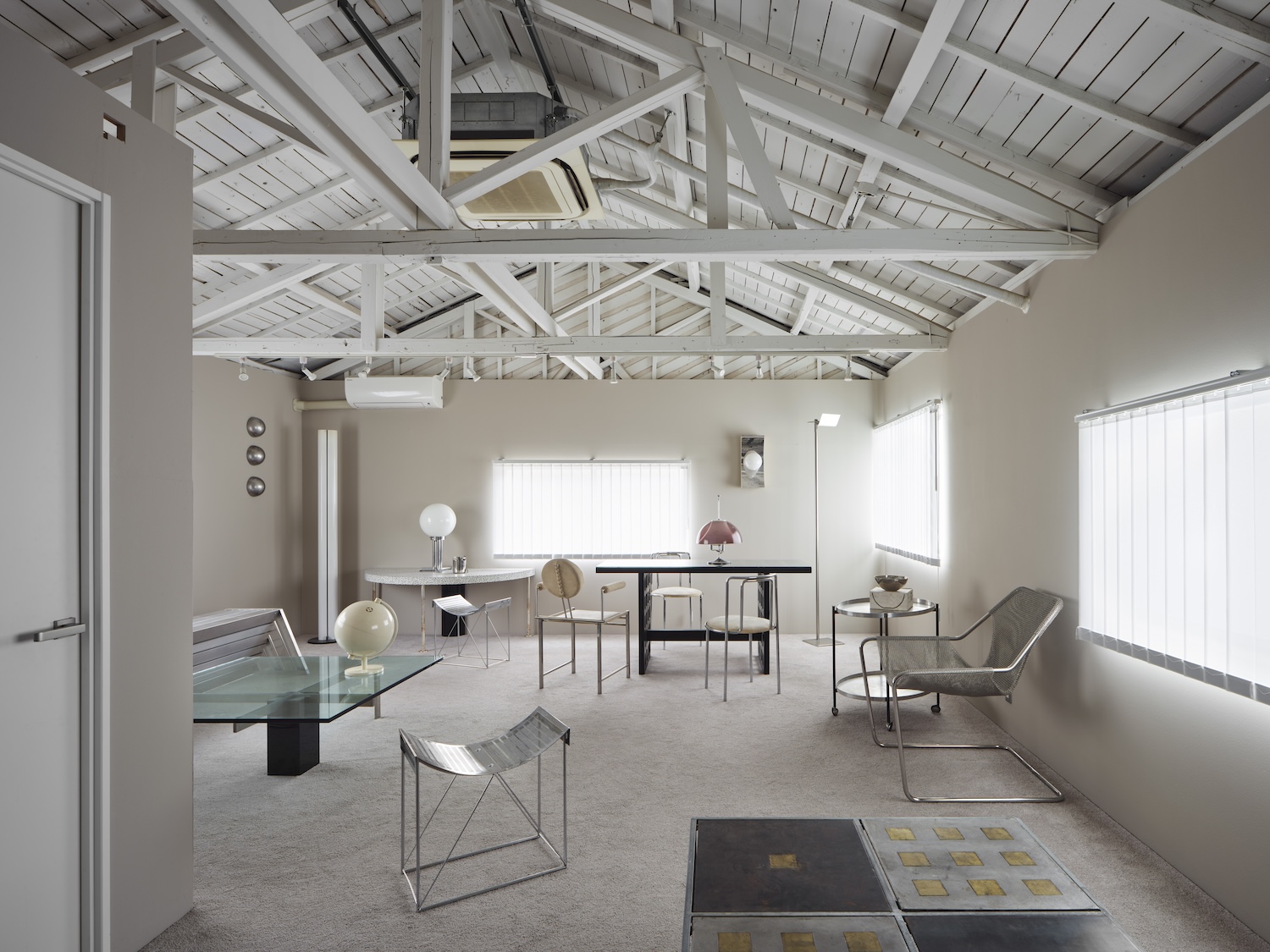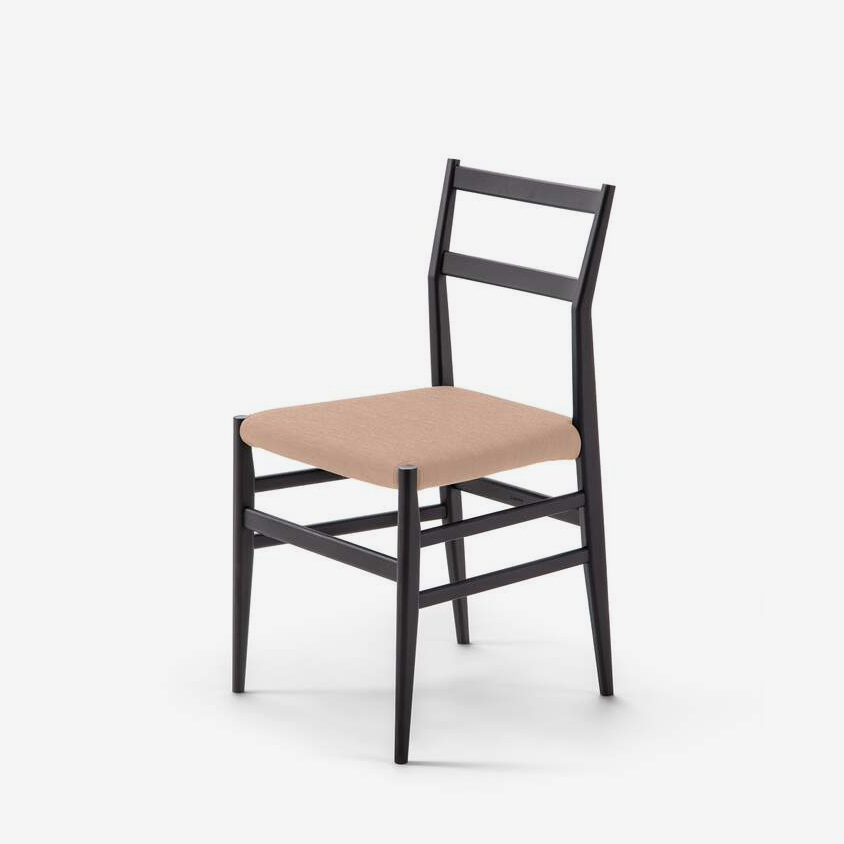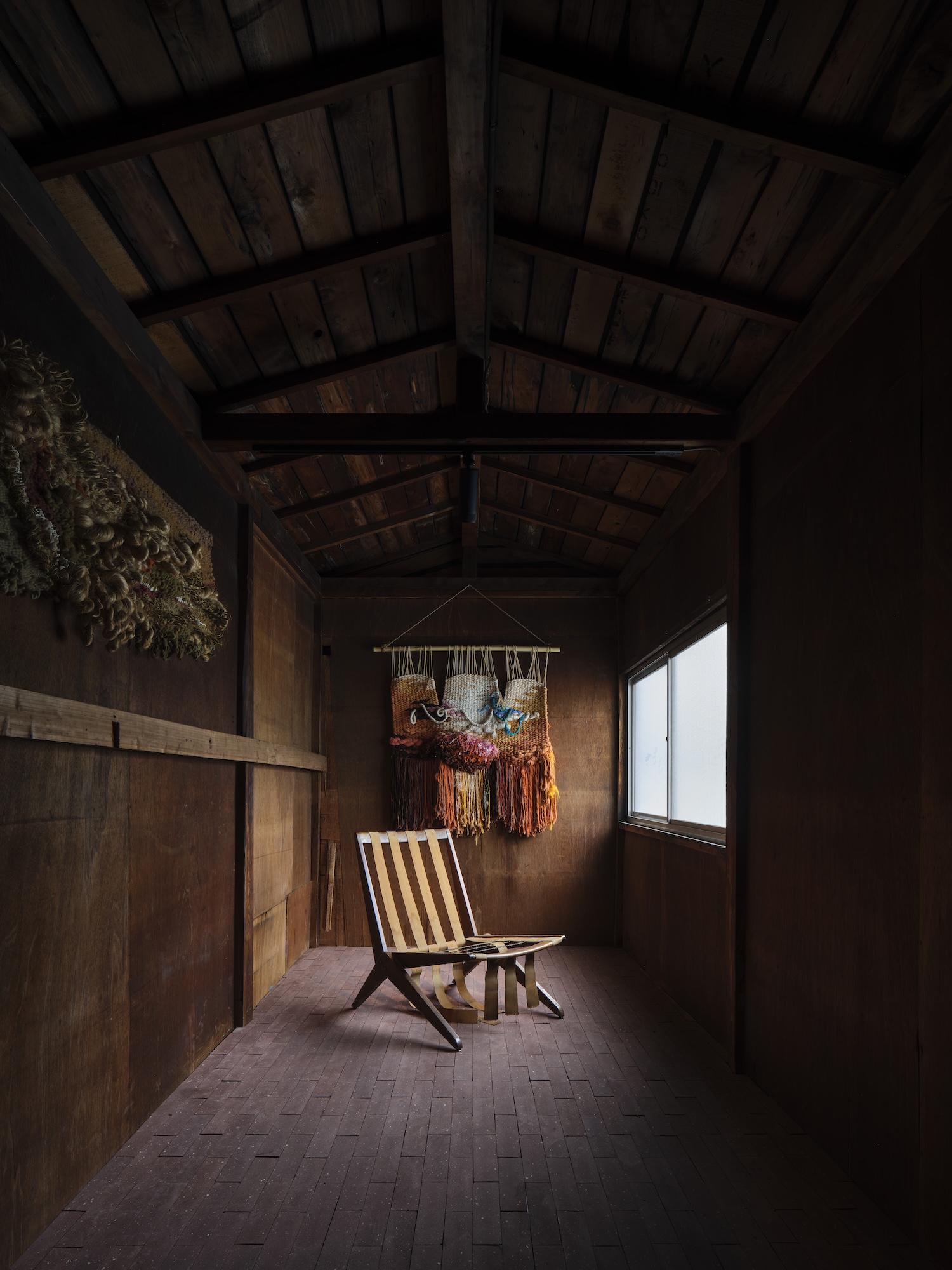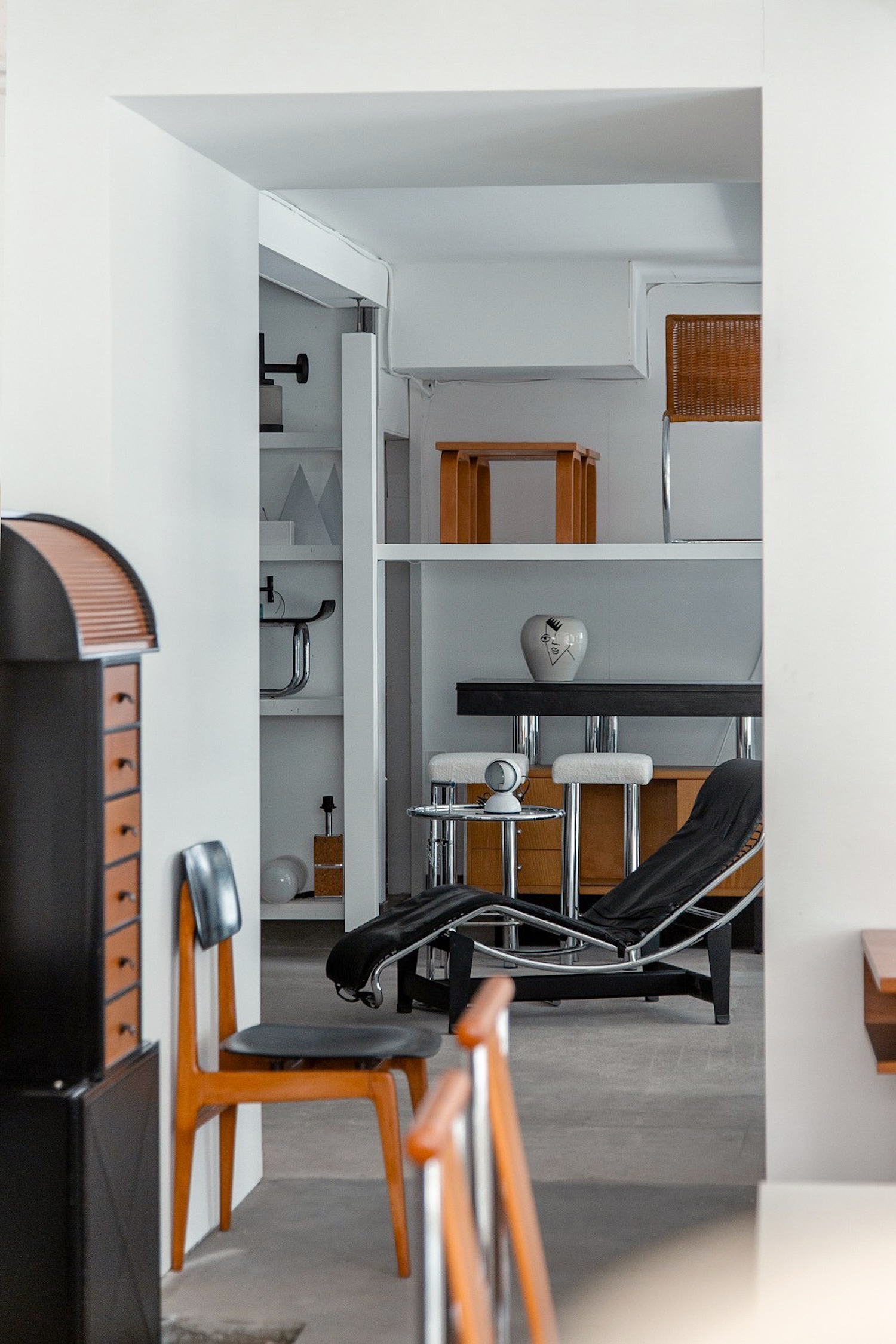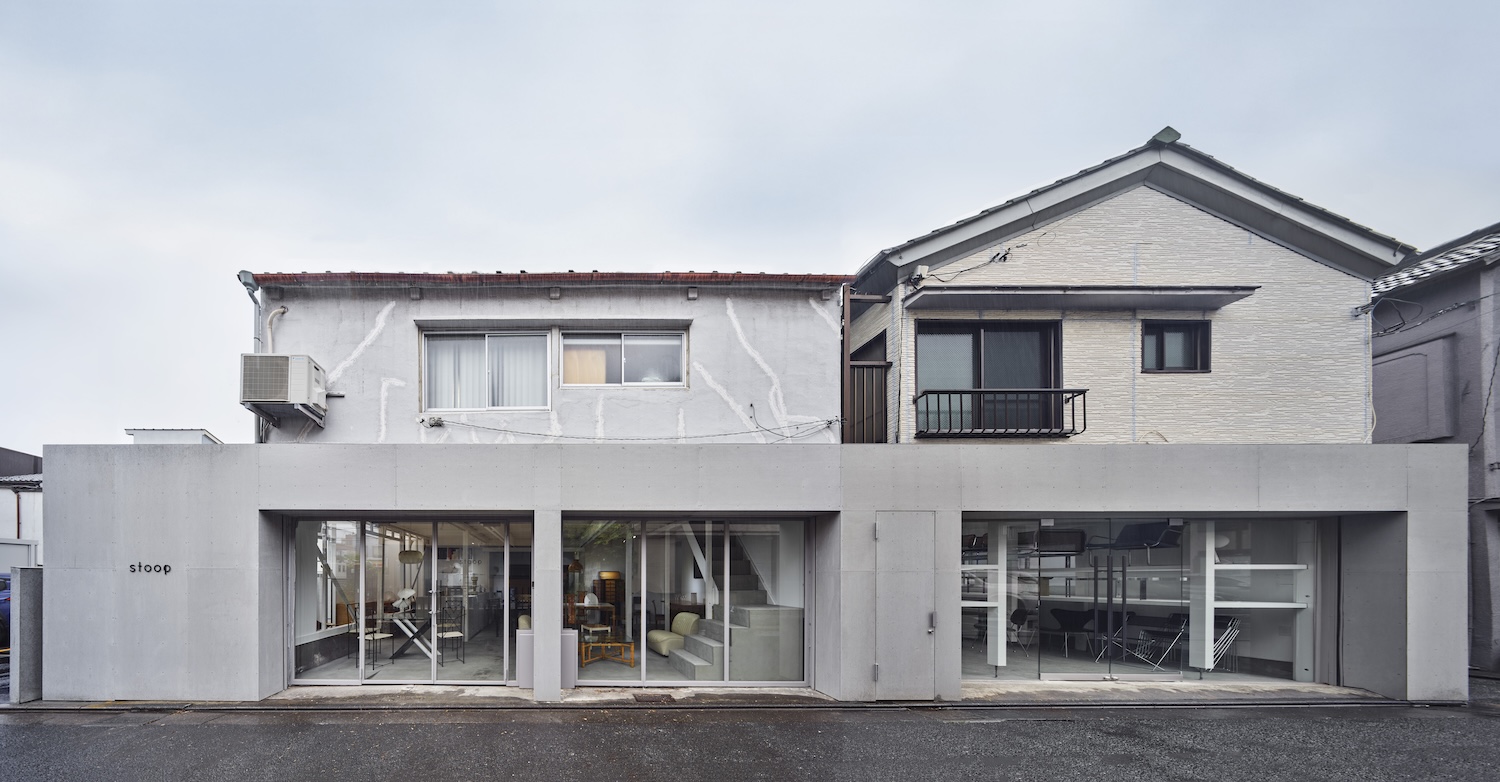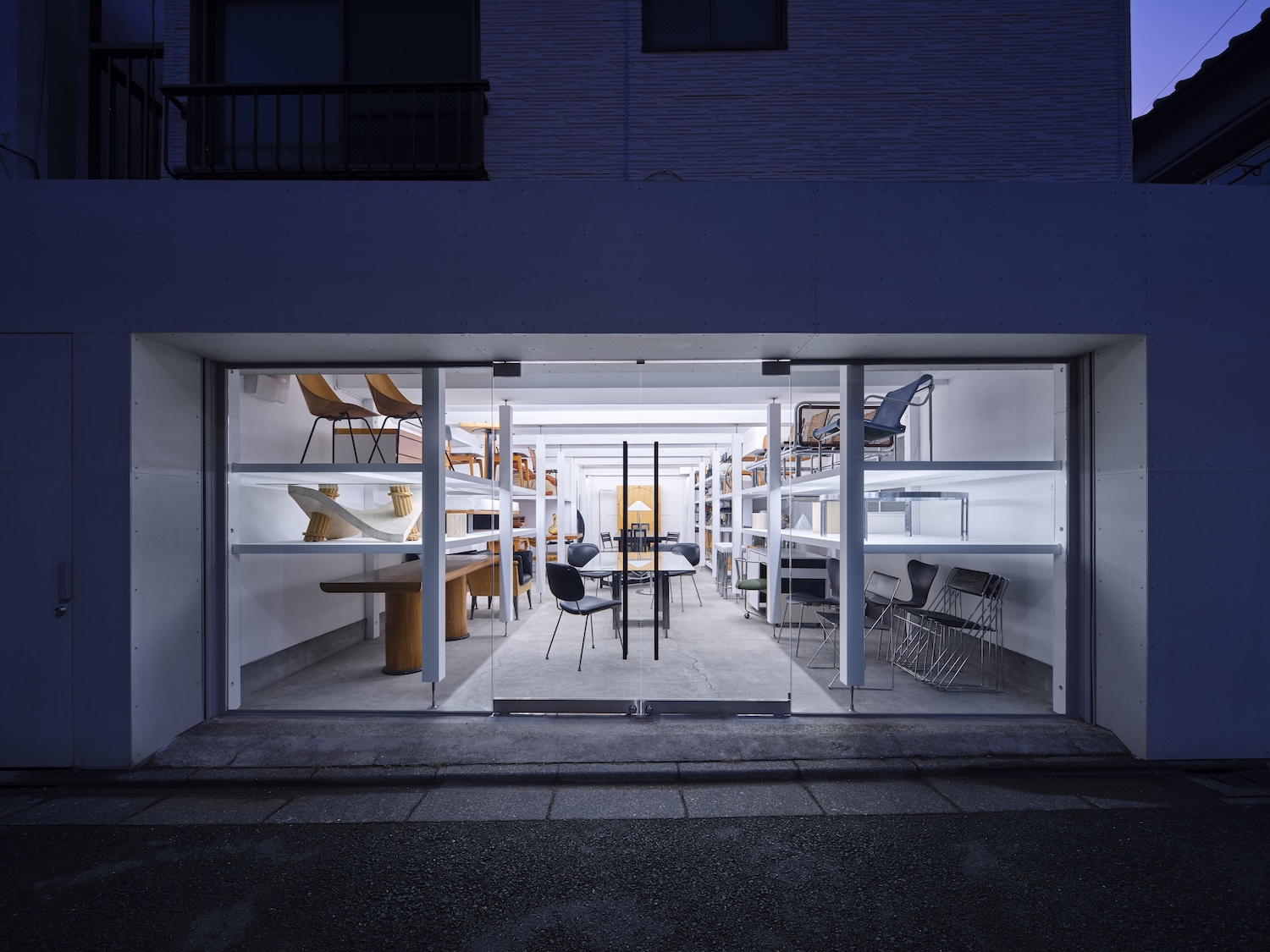Stoop is a minimalist showroom located in Tokyo, Japan, designed by moss. The interior strategy unfolds with similar intentionality. The original storefront remains largely untouched, transformed into a stage where a single chair or console can command attention under the natural light streaming from the opened ceiling. This decision to preserve rather than renovate echoes the broader movement in contemporary design toward adaptive reuse, where existing structures become collaborators rather than obstacles in the design process.
The variable shelving system installed in the former warehouse area represents a masterful understanding of curatorial flexibility. Unlike fixed retail environments that impose rigid hierarchies on objects, these adjustable displays allow each piece to find its proper context. A mid-century dining table might share space with an obscure 1970s floor lamp, their proximity creating new dialogues across decades and design movements.
The second floor sanctuary, accessed by the external staircase, operates on a different register entirely. Here, reduced lighting creates what exhibition designers call “museum lighting” – an environment where shadows become as important as illumination. Against the preserved wooden frame, exclusive vintage pieces emerge from darkness like discoveries in an archive. This is retail as theater, where the act of climbing stairs becomes a ritual of ascension toward rarer treasures.
What makes this renewal particularly compelling is its resistance to the typical gallery-white aesthetic that often flattens the personality of vintage objects. Instead, the design team has created what might be called “productive neutrality” – a backdrop that enhances rather than competes with the collected objects while maintaining enough character to tell its own story.
